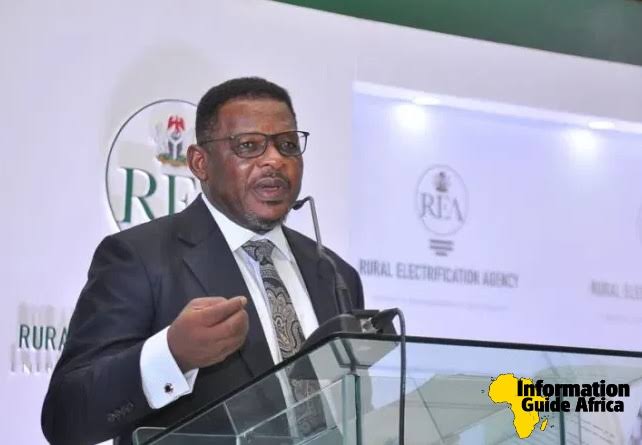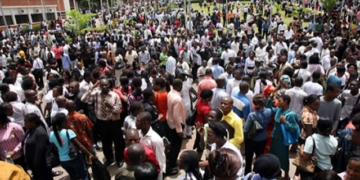Amidst heightened security challenges in the country, the minister of Power, Engr. Abubakar Aliyu has said that the federal government is set to build a 2.5 megawatts hybrid solar power plant in the Nigerian Defence Academy, (NDA), Kaduna to enhance security at the academy.
Aliyu, who stated this at the 40th National Solar Energy Forum (NACEF 2022), held at the JK Garba Hall, NDA, in Kaduna state, noting that reliable and sustainable energy was key in the fight against insecurity in the country.
The minister who was represented by the minister of state, Power, Goddy Jedy-Agba, maintained that “meetings of this nature, with extensive and robust discussions, will always bring out desirable outcome that can move Solar Energy penetration in Nigeria forward”.
The two days event which held between on Tuesday was organised by the Solar Energy Society of Nigeria (SESN) in collaboration with the Rural Electrification Agency (REA) and National Energy Commission (NEC).
The Minister, alongside the Commandant of NDA, Major General Ibrahim Manu Yusuf, the managing director of of REA, Engr. Ahmad Salihijo Ahmad, two executive directors of REA, Dr. Sanusi Ohiare, Engr. Barka Sajou, amongst others, were conferred with honourary fellowship of SESN award at the event.
Aliyu, while lauding the organisers of the event said that the theme “The Role Of Green Energy Technologies in National Security, Power Generation and Economic Sustainability”, was timely and necessary.
Continuing, he said that “Countries all over the world are variously exploring avenues of fulfilling their specific commitments and Nationally Determined Contributions (NDCs) in line with the Paris Agreement On Climate Change and COP26 Agreement in Glasgow. Nigeria is not left out”.
He intimated that to achieve Nigeria’s commitment to COP26, President Muhammadu Buhari’s administration is implementing different initiatives targeted at achieving at least, 30,000MW generation by 2030 with 30 per cent from renewable energy sources.
“The Buhari administration is fully committed to the global decarbonisation drive. To demonstrate this commitment, Government has opened discussions with some IPP Solar Project developers planning to deploy Solar Mini-grids across the country. Ten State governments are enabling Solar Projects in their states that will deliver 100MW each, contributing 1000MW to the Off-grid structure”, he said.
Deputy governor of Kaduna state, Dr. Hadiza Sabuwa Balarabe who also spoke at the forum said she was excited about the programme as she believes the outcome and suggestions will further enhance government’s efforts to rid the country of insurgency.
Earlier, Commandant of the Academy, Major General Yusuf in his welcome address said that the institution was delighted over the theme of the forum because it addresses the contemporary security challenges facing the country.
Yusuf said that, “there’s still much to do to achieve improved access to green energy sources. As an institution, we’ve devoted a lot of resources to improve knowledge on the issue and track global development on renewable energy sources because energy is a critical component of national security”.
Managing director of REA, Engr. Ahmad while delivering the keynote address averred that, in the last few years, there has been significant improvement in the nation’s renewable energy space because of different initiatives of the government.
Ahmad noted that the “federal government’s deliberately driving policies that are targeted at drawing in private sector participation, encouraging investments within the space and, ultimately, scaling up socio-economic impact of off-grid electrification, nationwide. This is in line with the social and economic policies and plans of the Federal Government.
While assuring NASEF of his agency’s continues support and collaboration, he charged participants that “as active stakeholders within the space, it is important to keep up with this momentum by playing our part in different spheres because on this journey towards ending energy poverty in Nigeria, strategies and roadmaps cannot be designed in silos but must be implemented as fit-for-purpose and deliberate endeavors to solve the nation’s energy problems”.











